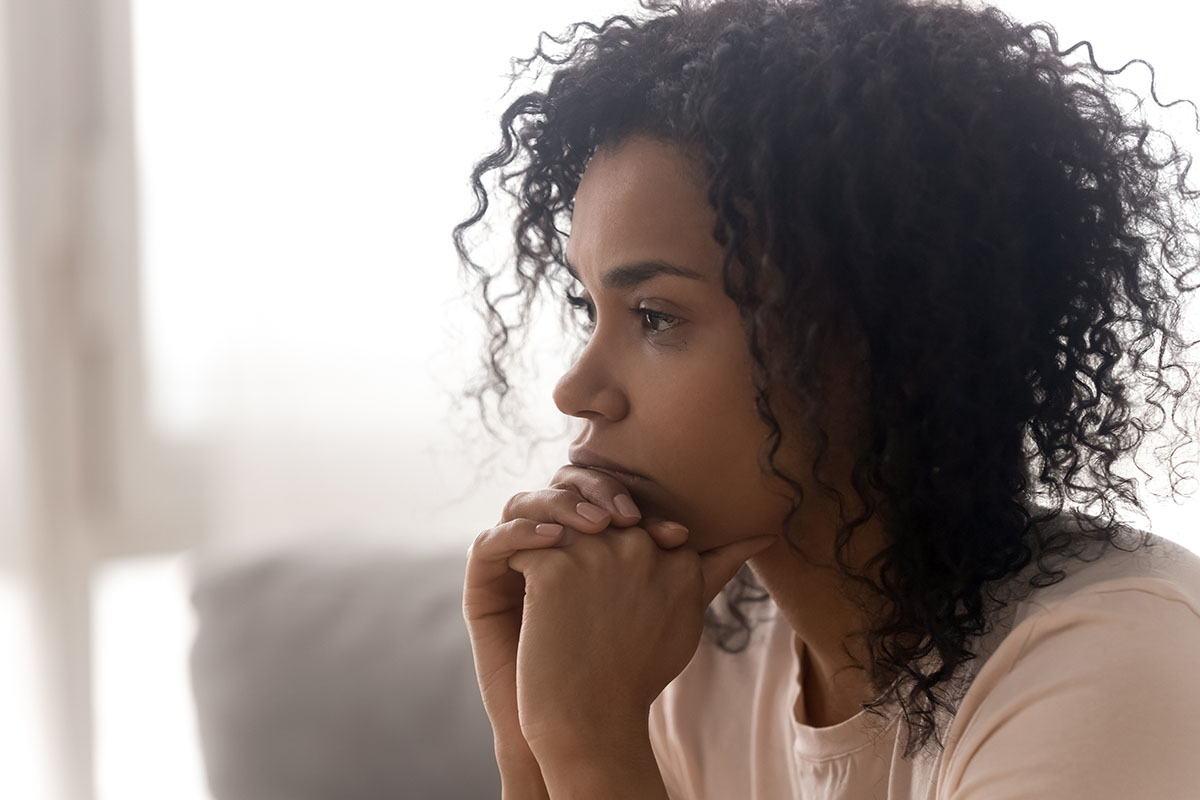Depression is America’s most common mental health disorder, and alcohol use disorder (AUD) is the nation’s most common serious substance abuse problem. Given these facts, it’s not surprising that depression and alcoholism frequently overlap. Unfortunately, the result can be more severe than depression or alcoholism alone when this happens.
If you’re affected by both conditions, you need help addressing them. You can find this help in a high-quality alcoholism and depression treatment program at Women’s Recovery. Contact us at 833.754.0554 if you’re tired of depression and drinking alone and want to overcome addiction.
The Connection Between Depression and AUD
The combination of depression and alcoholism is a classic dual diagnosis. This term can describe any situation where substance problems and mental illness occur together. Dual diagnosis is known for its severe impact on any affected person.
How are substance use disorders (SUDs) like AUD and mental health issues connected? The exact explanation may vary from person to person. However, researchers have identified three likely reasons for this overlap:
- Self-medication of mental health issues with drugs or alcohol
- The shared risk factors for SUDs and other mental health issues
- The mental health changes triggered by severe drug or alcohol abuse
Dual diagnosis cases involving alcoholism and depression are common. Research shows that depression is the most common co-occurring disorder in people struggling with AUD. Two factors help explain this situation. First, if you’re affected by alcoholism, depression can decrease your ability to avoid drinking. And if you’re affected by depression, you may start to self-medicate with alcohol.
How to Deal with Depression and Alcoholism Recovery
The presence of depression can make it harder to recover from alcoholism. At the same time, alcoholism can make it harder to recover from depression. Side effects that arise when depression meets alcoholism include:
- Low motivation for treatment – If you’re dealing with alcoholism and depression, the thought of going to therapy may be daunting. You might feel like you can’t handle it or that it will be too difficult.
- Trouble completing treatment – Depression can make it hard to stick to a treatment plan. This means you might be more likely to drop out of treatment early.
- Risk of relapse – If you finish treatment but don’t deal with your depression, you’re at a higher risk for relapse. This is because depression can trigger cravings and make it harder to resist the urge to drink.
How can you escape the overlapping effects of alcoholism and depression? By itself, depression treatment is not enough. That’s also the case for isolated alcoholism treatment. Instead, you must receive combined help for depression and alcoholism recovery. In many cases, mental health professionals and rehab specialists recommend that you participate in a dual diagnosis treatment program.
Therapy and Medications for Depression and AUD
Like other mental health issues, psychotherapy is typically the first line of treatment for depression and AUD. Therapy can support your recovery in numerous ways. That includes helping you engage actively in your treatment. It also includes learning how to avoid a relapse of either condition.
Medication also typically plays a significant role in depression treatment. It also has a vital role in alcoholism treatment. The list of depression and alcoholism medications is extensive. Potential options for depression treatment include classes of antidepressants such as:
- Atypical antidepressants – This type of antidepressant medication is newer and has been developed in response to the limitations of older medications. They offer an alternative for people who haven’t found relief from other types of antidepressants.
- Monoamine oxidase inhibitors (MAOIs) – This type of antidepressant medication increases the amount of serotonin and norepinephrine in the brain. MAOIs are one of the first types of antidepressant medications developed. They’re effective, but medications with fewer adverse effects have mostly replaced them.
- Selective serotonin reuptake inhibitors (SSRIs) – This type of antidepressant medication works by increasing the amount of serotonin in the brain. Serotonin is a chemical that affects mood, emotions, and sleep. SSRIs are the most commonly prescribed type of antidepressant.
- Serotonin and norepinephrine reuptake inhibitors (SNRIs) – Like MAOIs, this type of antidepressant medication increases serotonin and norepinephrine in the brain. SNRIs are the second most commonly prescribed type of antidepressant, behind SSRIs.
- Tricyclic antidepressants – This type of antidepressant medication works by increasing the amount of serotonin and norepinephrine in the brain. Tricyclic antidepressants, often known as tetracyclic antidepressants or cyclic antidepressants, are one of the first types of antidepressant medications developed. They’re effective, but like MAOIs, medications with fewer adverse effects have mostly replaced them.
Each of these groups contains multiple kinds of medications. It can take a while for you and your doctor to find the one that works best for you. And once you find one that works, it can take a while before you feel its full effects.
When detoxing from alcohol, you may be given benzodiazepines for sedation. Medication is also used during alcohol addiction treatment. Options are available to make drinking less rewarding and appealing. The proper medication can also undo some of the brain effects of chronic heavy drinking.
Overcome AUD and Depression with Dual Diagnosis Treatment at Women’s Recovery
Women have unique risks for alcoholism. They also have unique risk factors for depression. At Women’s Recovery, we understand these risk factors. To help you recover, we provide women-centered dual diagnosis treatment. This treatment is not only designed to treat both conditions affecting you but is also customized for your specific situation.
Our goal is to maximize your odds of a lasting recovery. That’s true regardless of the extent of your depression and alcoholism symptoms. To learn more about how we can help, call us today at 833.754.0554 or fill out our online form.







